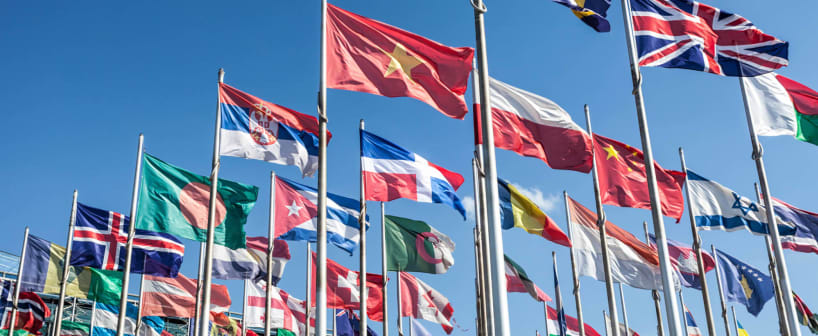By Bennett Leckrone
International business schools tout diverse student populations from across the globe — and one such institution flexed its global reach by breaking a Guinness World Record for the number of nationalities represented in a single business class.
Students from 60 countries attended a class at Hult International Business School’s Holborn campus in London in March. That figure was well above the 50 nationalities needed to set the record, according to a press release from the international business school.
Hult has campuses across the globe, and the overwhelming majority of Hult students are studying at a campus outside of their home country. Hult’s global student body includes more than 150 nationalities.
The record-breaking class, taught on March 13 by Hult Professor Chris Kinsville-Heyne, focused on crisis management. Students were required to stay for the entirety of the 45-minute class to meet Guinness World Records requirements.
I was thrilled to see this wide array of learners in the classroom, as it reflects just what makes Hult special — its diversity of cultures and thought,
Kinsville-Heyne said in the release.
Discussing details in the World Economic Forum’s 2024 Global Risk Report, I challenged students to think beyond limitations and envision ambitious solutions to current global challenges; to dream big and make meaningful contributions as a collective.
Tomaz Nicolai Diaz, a Hult student from the United States pursuing a master’s in international business, said massive international diversity is the norm at Hult.
I feel like this was very representative of what’s normal at Hult. In my class alone, we’re represented by at least 30 different nations — and we only have a total of 60 people in our cohort,
Diaz said in the release.
Students in Hult’s record-breaking class represented: Argentina, Australia, Austria, Belgium, Brazil, Bulgaria, Cambodia, Canada, China, Colombia, Croatia, Cyprus, the Democratic Republic of Congo, the Dominican Republic, Ecuador, Finland, France, Gambia, Georgia, Germany, Ghana, Greece, Guinea-Bissau, India, Iran, Ireland, Israel, Italy, Japan, Jordan, Kazakhstan, Latvia, Lebanon, Lithuania, Madagascar, the Maldives, Mauritius, Mexico, Morocco, Nepal, New Zealand, Nigeria, Norway, Pakistan, Peru, Philippines, the Republic of Korea, Romania, South Africa, Spain, Sweden, Switzerland, Thailand, Tunisia, Turkey, Ukraine, the United Kingdom, the United States, Uzbekistan, and Vietnam.
An international business degree prepares students to work in a wide variety of settings in the U.S. and abroad with a heavy focus on a global and cross-cultural perspective.
That skill set is in demand in an increasingly globalized economy, and more business schools are emphasizing international work in their curricula and offering international immersion trips and exchange programs.
Other International Business School Records
Another United Kingdom-based business school previously set a similar record for the number of nationalities represented — but at a very different event.
London Business School students in 2018 came together to set the record for most nationalities in a simultaneous popular music sing-along. Students from 72 different countries came together to sing “Imagine” by John Lennon as part of that record.
The most prolific computer-assisted author is a professor at the international business school INSEAD.
Phillip M. Parker, a professor of management science at INSEAD, has written in excess of 200,000 books — only he’s had a little help, in the form of 60-70 computers, a team of programmers and a clever software algorithm he designed,
according to Guinness World Records.
Parker’s automatically generated books long predate the rise of current generative artificial intelligence. And, according to a 2008 New York Times article, they are centered on highly specialized, niche topics like The 2007-2012 Outlook for Tufted Washable Scatter Rugs, Bathmats, and Sets That Measure 6-Feet by 9-Feet or Smaller in India.

